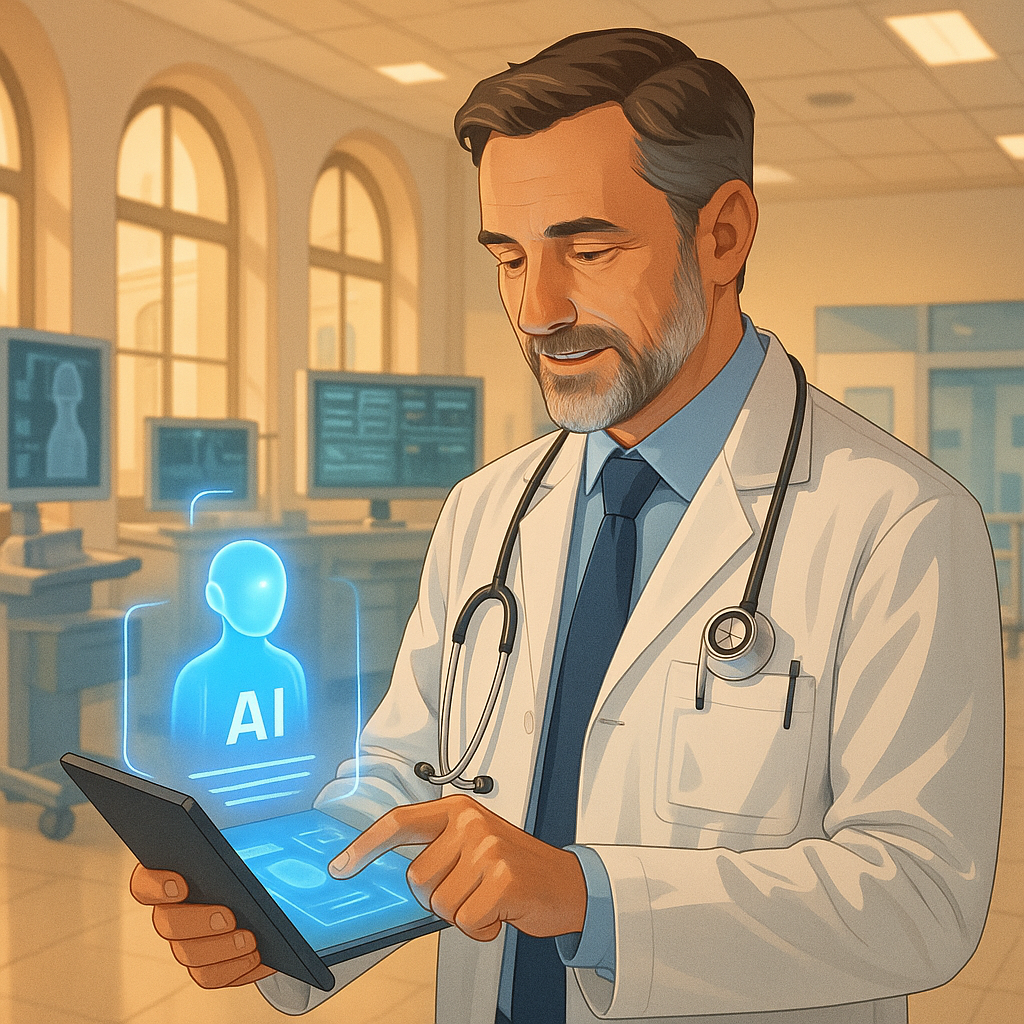The Current State: AI Agents Are Already Here
AI in healthcare is no longer a distant future concept. We're seeing incredible applications right now:
Current AI Healthcare Applications:
Diagnostic Support
AI agents are achieving 90% accuracy in some diagnostic tasks, sometimes outperforming individual doctors
Administrative Automation
Systems like Dragon Copilot are cutting documentation time by 40%+ in hospitals
Patient Monitoring
Real-time AI monitoring systems are reducing readmission rates by 30%
Clinical Decision Support
AI orchestrators are boosting diagnostic performance across all major language models
Which Models Are Leading the Pack
After analyzing recent studies, here's the healthcare AI landscape:
Top Clinical Performers
- Claude 3.5/4: Excelling in medical reasoning and providing safer, more conservative recommendations
- GPT-4o: Strong all-around performance with excellent integration capabilities
- Gemini Ultra: Cost-effective option with solid diagnostic capabilities
Interestingly, Microsoft's AI Diagnostic Orchestrator, paired with OpenAI's o3, recently achieved 85.5% accuracy on complex NEJM cases - compared to 20% for practicing physicians on the same tasks! But here's the key insight: when doctors actually collaborated with AI, the results improved significantly.
The European Context: Navigating the Regulatory Landscape
The EU AI Act officially entered force in August 2024, and it's a game-changer:
EU AI Act Key Points
High-Risk Classification: Most healthcare AI tools automatically fall under "high-risk" categories
Compliance Deadlines: Key obligations start February 2025, with full implementation by August 2026
Penalties: Non-compliance can cost up to €35 million or 7% of global turnover
Ireland's Leading the Way: Ireland recently designated nine national authorities to oversee AI in healthcare, positioning itself as a proactive leader in ethical AI governance. The HSE's new AI and Automation Centre of Excellence is actively exploring radiology and administrative applications.
UK Developments: NHS England has comprehensive guidance for AI implementation, emphasising patient-centred approaches and robust governance frameworks.
The Real Talk: Risks and Challenges
Let's not sugarcoat this - implementing AI in healthcare comes with serious considerations:
Data Privacy Concerns
- Healthcare data is a prime target for cybercriminals
- GDPR compliance becomes even more complex with AI processing
- Risk of AI models "memorising" and later exposing patient information
The Human Factor
- Recent studies reveal a concerning trend: when humans interact with AI chatbots for diagnosis, accuracy significantly drops
- This highlights the critical need for proper training on AI collaboration
- AI systems can perpetuate biases present in training data, potentially leading to discriminatory healthcare outcomes
Building It Right: Key Principles
If you're planning to implement AI agents in your healthcare organisation:
Essential Implementation Principles:
Start with Strong Governance
Establish clear policies for data handling, human oversight, and quality assurance
Focus on Augmentation, Not Replacement
The most successful implementations use AI to enhance human decision-making, not replace it
Invest in Training
Healthcare workers need proper education on AI collaboration - it's not intuitive!
Ensure Transparency
Patients have the right to understand how AI influences their care
Plan for Compliance
Start preparing for EU AI Act requirements now - the deadlines are approaching fast
The Irish Innovation Scene
Exciting developments in Ireland: Health Innovation Hub Ireland (HIHI) just launched their first AI in healthcare call competition, supporting the development of AI solutions for the Irish healthcare system. The Mater Hospital in Dublin became the first Irish hospital to launch a Centre for AI and Digital Health, focusing on research-driven tools to improve patient outcomes.
Innovation Spotlight
The Mater Hospital's AI Centre represents a significant milestone in Irish healthcare innovation, demonstrating how academic medical centres can lead the way in responsible AI implementation while maintaining the highest standards of patient care.
Looking Ahead
The potential is enormous - from personalised treatment plans based on genetic data to AI-powered surgical assistance and virtual patient twins for treatment simulation. But success depends on getting the fundamentals right: robust governance, proper training, and genuine collaboration between humans and machines.
What's your experience with AI in healthcare? Are you seeing positive impacts in your organisation? The conversation around responsible AI implementation in European healthcare is just beginning, and every professional has a role to play in shaping this future.
References
- 2025 Watch List: Artificial Intelligence in Health Care - NCBI Bookshelf
- AI vs Medical Experts: Chatbot Outperforms Doctors In Diagnostic Accuracy
- AI Agents in Healthcare: Top Examples & Use Cases 2025
- 7 ways AI is transforming healthcare | World Economic Forum
- The Path to Medical Superintelligence | Microsoft AI
- Claude vs Gemini vs GPT: Which AI Model Should Enterprises Choose? | TTMS
- EU & UK AI Healthcare Regulation Tracker For 2025
- Ireland Designates Nine Authorities to Safeguard Fundamental Rights Under the EU AI Act - WILLIAM FRY
- Expanded role of HSE AI and Automation centre - Medical Independent
- NHS England » Artificial intelligence (AI) and machine learning
- Privacy Concerns With AI in Healthcare
- AI in Healthcare: Protecting Patient Data in the Digital Age | NeuralTrust
- Bot-ched advice -- 'disturbing' results in AI study
- Health Innovation Hub Ireland (HIHI) launches first AI in healthcare call competition
- Using AI safely and responsibly in primary care - The MDU

